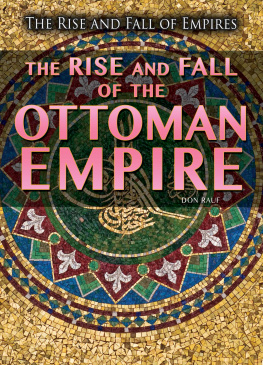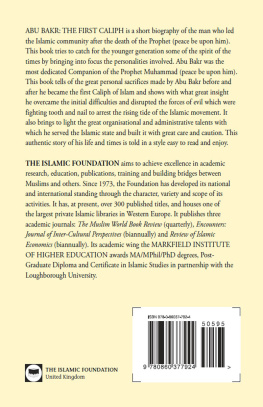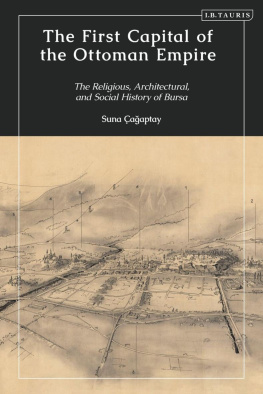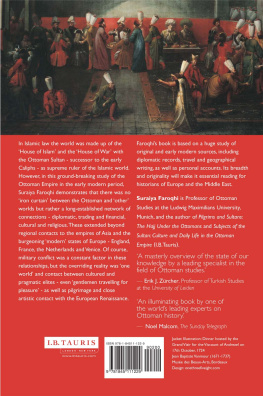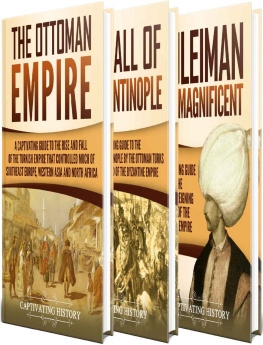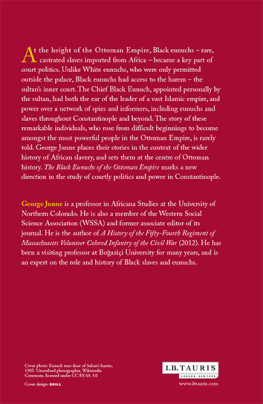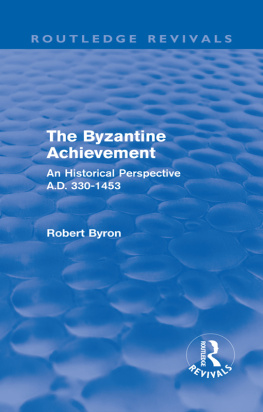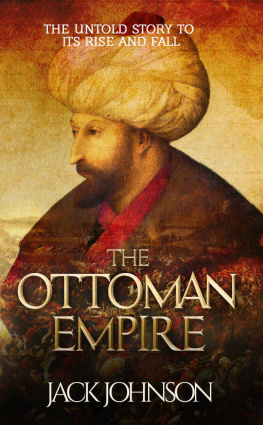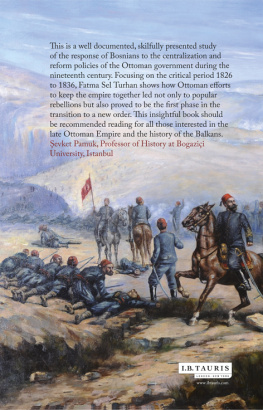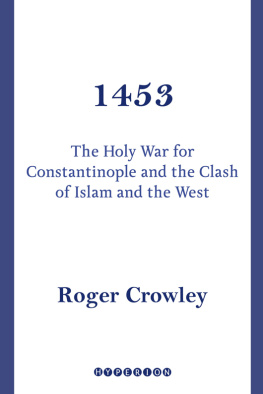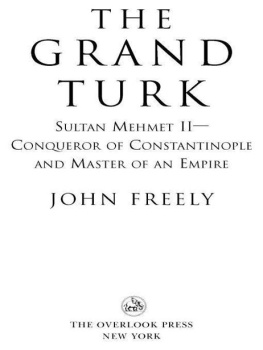PTS Publishing House Sdn. Bhd.
No 12, Jalan DBP,
Dolomite Business Park,
68100 Batu Caves, Selangor.
www.pts.com.my
Hak cipta 2016 oleh Abdul Latip bin Talib.
Hak cipta terpelihara. Tidak dibenarkan mengeluar ulang mana-mana bahagian artikel ilustrasi dan isi kandungan buku ini dalam apa jua bentuk sekalipun, sama ada secara elektronik, fotokopi, mekanik, rakaman atau cara lain sebelum mendapat izin bertulis daripada PTS Publishing House Sdn. Bhd.
33: The Will & Testament of a Conqueror
Sultan Muhammad al-Fateh was at the zenith of his rule. After the success of his Constantinople campaign, he had further stretched the rule of the Ottoman Empire throughout 40 countries including those in Eastern Europe, Bulgaria, Yogoslavia, Czechoslovakia, Poland and the other Arab nations that include Egypt, Hijjaz, Yemen, Iraq, Palaestine, Tunisia, Morocco, Algeria and Libya, in which had earned him the nickname al-Fateh or The Conqueror. Although the name had brought him respect, fame and fortune, Sultan Muhammad al-Fateh was never boastful and neither was he neglectful during his reign. He was still pious and lived in all humility, just as what had been described by the Prophet PBUH; a good leader that has good soldiers and good people.
One day, Sultan Muhammad was having a meeting with his ministers and in that meeting he had voiced his wish to captain a large amount of soldiers for a great mission.
Your highness, you are indeed a great conqueror. May we know which country you are going to invade next? asked Muhammad Pasya, the man who had replaced Khalil Pasya as prime minister.
No one knows where except for God, himself. Even if a strand of my hair knows where I will be going, I will pull it out and burn it, Sultan Muhammad answered.
Even though it was shrouded in secrecy, it could not stop the news of the undertaking of a large campaign from spreading like wildfire. Almost everyone in Turkey speculated.
Sultan Muhammad could be targeting Rhodesia and the islands surrounding it. He had tried it once before, but Commander Masih Pasya failed. That could be it. Thats why he wanted to do it himself this time, Amir Pasya said.
Or could it be he wants to join forces with our soldiers that are now in Italy? After they had invaded Italy they will head for France, Spain and Portugal, Khalid Oglo speculated.
When he is going to lead an army, he will always keep it a secret. That should keep all his targets in the dark. No one knows who or when will he attack, Muhammad Pasya explained.
When the day came, Sultan Muhammad al-Fateh was preparing to leave Istanbul with 250,000 soldiers. Before he left one of his personal doctors came to him. You will be leaving on a long journey. Drink this medicine, it should provide you with the energy and health you need for it, said Yakop Pasya, a Jewish doctor.
Before he converted to Islam, he went by the name of Maesto Jakopa. After he converted he requested to become the sultans personal doctor, as he believed that it was in this position would his skills be most useful. Since then, both the sultan and him had become close friends.
Sultan Muhammad al-Fateh and his men left for Asia Minor. They had to stop in Askadar because Sultan Muhammad suddenly fell sick. He had high fever. At first, he didnt mind because usually once he is in the battlefield or at war, his mind will be focused more on the war rather than his illness. Unfortunately, his illness only worsened. Muhammad Pasya quickly called on a doctor to tend to the sultan.
He was poisoned. The poison is now deep in his veins. Curing him, is beyond us, said the doctor who went to check on the sultan.
In the campaign, Sultan Muhammad al-Fateh travelled with his son; Prince Beyazid II. He was furious and shocked when he found out that his father was poisoned. When he asked his father, Sultan Muhammad calmly answered, Even if I know the person who did this, I could not tell you who it was. It is all written by God. This is fate.
Before he died, Sultan Muhammad passed on his will and testament to his son.
It is time for me to meet Allah SWT. I have no regret over what had happened because all of this had been determined by God. Besides, when I am gone, I already have you to take my place. This shall be my last request to you: become a just leader. Give your people protection and justice without prejudice. Spread Islam, for it is demanded upon the rulers of Islam. Prioritise religion above anything else. Do not procrastinate, or be weak in upholding religion. Do not appoint anyone without religion into your council. Do not appoint known sinners to be any of your consults. Stay away from bidaah and heresy, and stay away from people who bid you to join them in such practices. Continue our jihad in defending our religion and expand your reign. Guard the assets of the Baitulmal and never be wasteful of it. Never take possession of our people unless by following the rule and governance of Islam.
Remember, respect the ulama . Never expel them from the palace. Never do any deeds that are against Islam. Religion is our purpose in life. Our victory in life is also due to religion.
Take my life as a guide for you to lead your life.
I was born into this world small and insignificant, and then God had made me great. Work your hardest towards upholding our religion. Never be wasteful or living lavishly using the funds of our nation as it will lead to the destruction of your nation.
After he said his last words, he recited the syahadah and after that he sighed his last breath. The news of the passing of the great conqueror Sultan Muhammad al-Fateh spread faster than wildfire. The Ottoman soldiers in Italy mourned their loss. Commander Umar bin Tharhan planned to take his men home. He then signed a peace treaty with the king of Napoli so that he would not stop them in their travel home. However the king of Napoli took advantage of this and violated the peace treaty. He had caught the soldiers who were at the back of the convoy leaving Napoli.
Sultan Muhammad al-Fateh left at the peak of his zenith. Muslims around the world mourned his death.
Unfortunately, his death had brought joy to the Christians. When the news reached Rome, the Pope was so happy he had ordered the churches to be opened and they had held a celebration. They paraded by singing songs of victory and religion. They all celebrated for three days and three nights. Meanwhile, the Grand Pope had ordered for all the churches to ring the Churches bell for three days and three nights to celebrate their happiness.
Sultan Muhammad al-Fateh was born on the 29 th of March 1432 and passed away on the 3 rd of May 1481. He was 49 years old. May Allah grant him forgiveness, and mercy upon him. Al-Fatihah .
Introduction
The Al Ghizz tribes inhibited the highlands of Mongolia and northern China. They are called the Turks because they speak Turkish, which had originated from the Ural-Altaic language traits.
In the 6 th century, they left the region to save themselves from the threat of the Mongols. They were looking for a much safer place to live.
During the rule of Caliph Umar al-Khattab, the Muslim soldiers led by Abdul Rahman bin Rabiah arrived at the area populated by the Turks. In a meeting with the Turkish King by the name of Syahr Baraz, Abdul Rahman had offered the king a choice of war or peace. Syahr Baraz chose peace and they embraced Islam. From then onwards, the Turks had helped the Muslim soldiers to conquer Armenia and had also helped to spread Islam to the region.
During the rule of Muawiyah bin Abu Sufian, the people of Turkey had helped the Muslims to conquer Bukhara and Samarkand. The Turks continued to play a great part in the expansion of the Islamic empire until the period of the Abbasid Empire. During the time, Turkish people had already held important positions in the military and the government.


